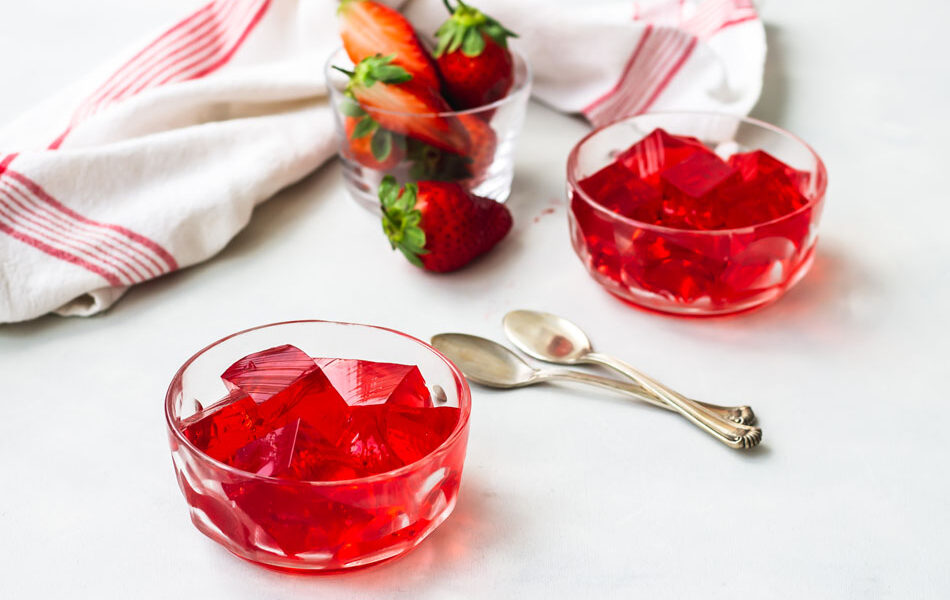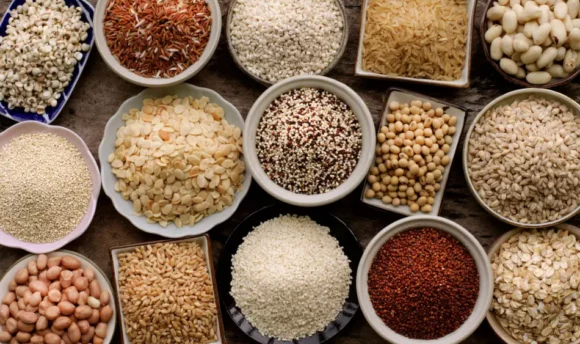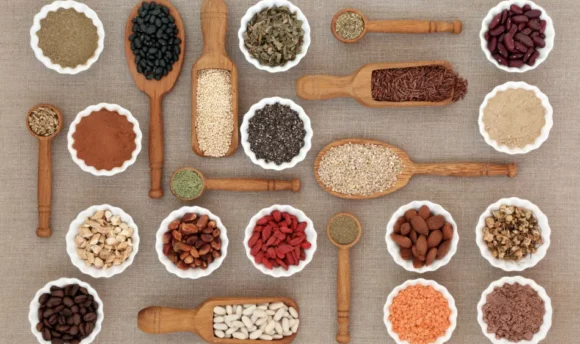Is Jello Healthy? Nutrition Facts and Health Benefits
Jello is a nostalgic and sweet treat we all love. However, it may have some implications for your health. Read to learn more!

As a favorite childhood dessert that often grows into adulthood, jello is a fan favorite that is jiggly, sweet, and colorful. Beloved flavors include orange, cherry, and lime. Yum!
It is common to wonder if jello is healthy for you, especially since it is so easy to eat large amounts of it. Are there ways to make jello more nutritious? Let’s talk about it!
What Is Jello Made of?
Jello is made of gelatin, water, sugar, and flavoring. The flavoring is typically an artificial flavor and includes some artificial coloring agents, such as food dyes, as well.
Some varieties lower in sugar contain artificial sweeteners.
Jello can include other ingredients, such as fruit, but is commonly consumed on its own.
Is Jello Healthy?
Although it is low in calories and fat, jello is not healthy because it is high in sugar and does not provide any beneficial nutrition. Additionally, the potential health benefits from collagen in the gelatin that jello contains are pretty small.
Gelatin vs. Jello
Gelatin is a collagen-based compound that is used as a thickening ingredient. Collagen is a protein made up of amino acids. These amino acids make up the majority of connective tissue in your body.
Consuming gelatin is flavorless, and the gelatin powder is colorless.
Many consume gelatin-rich soups to reap benefits as well.
However, jello is a dessert made by combining gelatin with water, sugar, flavoring, and often coloring. It is a gelatinous treat that is often fruit flavored and can even include cut-up pieces of fruit, such as mandarin orange slices or chunks of pear.
5 Health Benefits of Jello
While the jello itself is high in sugar and does not have much nutritional value except very trace amounts of some vitamins and minerals, the gelatin in the jello contains collagen, which can potentially provide some benefits. Let’s talk about some of the key benefits of gelatin!
#1 Good for strong bones
One of the benefits of gelatin and the collagen it contains is its favorable effects on bone strength.
According to Osteoporosis International, collagen and the amino acids it contains play a crucial role in bone strength. Unfortunately, over time and as we age, bones naturally weaken and become more brittle and fragile.
Therefore, it is important to prevent bones from weakening and ensure they stay strong and healthy by consuming gelatin powder that can help with bone health and bone mineral density.
#2 Boosts strong muscles
A 2015 study in the British Journal of Nutrition found that collagen supplementation also increased muscle strength and body composition in elderly men with sarcopenia. Sarcopenia involves muscle loss due to age.
Therefore, collagen helped improve muscle loss and promote muscle strengthening in these participants.
#3 Beneficial to the skin
Another benefit of gelatin is that the collagen in it has the primary function of providing strength and support to the body, primarily through the skin. According to the Cleveland Clinic, collagen plays an essential role in forming the dermis (the middle layer of the skin), replacing dead skin cells, and giving structure and elasticity to your skin.
#4 Promotes heart health
Based on connective tissue, consuming gelatin and collagen plays a vital role in keeping arteries flexible and elastic. Arteries are the blood vessels through which your heart pumps blood all throughout the body.
Without flexible and elastic arteries, the arteries are more likely to become clogged and potentially cause chronic heart diseases, such as atherosclerosis, high blood pressure, heart attack, or stroke.
#5 Supports healthy joints
While the amount of collagen in gelatin that is in jello is much lower than the quantity of collagen in gelatin supplements, the Mayo Clinic describes how gelatin supplements provide strength and elasticity to different parts of the body.
More specifically, collagen provides elasticity between connective tissues, bones, ligaments, and tendons, that keep you pain-free and agile.
You can also support collagen and amino acid formation by consuming foods rich in manganese, copper, zinc, and vitamin C.
However, the amount of collagen in jello is so small that the actual beneficial effects of eating jello on connective tissues are unknown.
Jello Nutrition Facts
Now that we have talked about the potential health benefits of jello – more specifically, the collagen in gelatin that is in jello – let’s talk about the nutritional information of a serving of jello. Read on!
Nutritional table (per 100g)
| Calories/Nutrient (per 100g) | Amount |
| Calories (kcal) | 60 |
| Sodium (mg) | 75 |
| Net Carbs (g) | 14.2 |
| Fiber (g) | 0 |
| Sugar (g) | 13.54 |
| Fats (Total) | 0 |
| Protein (g) | 1.22 |
| Cholesterol (mg) | 0 |
Source: https://fdc.nal.usda.gov/fdc-app.html#/food-details/1103986/nutrients
Low in calories and fats
A 100-gram serving of jello contains only a mere 60 calories and zero grams of fat. This is good for those who are looking to lose weight or maintain their current weight, as many other desserts are way higher in calories.
However, keep in mind that a one-cup serving of jello is 240 grams. Therefore, it is easy to over-consume this tasty treat. For example, a serving of 60 calories can quickly turn into 120 calories, 180 calories, and so on. So be sure to have jello in moderation and in small amounts.
Additionally, since jello does not have meat, dairy, or eggs, it is cholesterol-free. This is aligned with the recommendation from the 2020–2025 Dietary Guidelines for Americans to consume as little dietary cholesterol as possible.
Low in protein
Unfortunately, a 100-gram serving of jello only has about one gram of protein. Even though collagen is a type of protein, jello only contains very small amounts of collagen.
While other desserts may contain more protein, since jello is lower in calories and fat, it is a healthier dessert.
High in carbohydrates
Jello is high in sugar, with almost 14 grams in a serving of 100 grams. In addition, it contains 14 grams of net carbohydrates.
The American Heart Association recommends that women consume no more than 6 teaspoons or 25 grams of sugar a day, while men should have no more than 9 teaspoons or 36 grams.
Therefore a 100-gram serving of jello can take up a considerable part of your daily sugar allowance. However, it does not contain significant amounts of fiber or protein, so the sugar in the jello will cause a blood sugar spike.
A diet high in sugar and carbohydrates can cause weight gain and increase the risk of developing type 2 diabetes, heart disease, and more.
If you can, opt for a jello variety that is lower in sugar instead of the full-sugar version. The varieties lower in sugar often have artificial sweeteners.
Homemade Jello Recipe
So, is there a way to make jello healthy? Let’s walk through a recipe for healthy jello.
Jello ingredients
- 1/4 cup of cold water
- 1 tbsp of unflavored gelatin powder
- 1/4 cup of hot water
- Honey or agave nectar, to taste (you could also use artificial sweeteners, such as Splenda)
- 1 cup of 100% fruit juice of your choice (except pineapple juice since it keeps the jello from setting)
- 1/3 cup of cut-up fruit of your choice, such as mandarin orange slices
Directions
- Pour the cold water into a mixing bowl and add the unflavored gelatin (if you are vegetarian or vegan, you can use a teaspoon or two of agar powder).
- Stir the mixture together until it begins to thicken.
- Add in hot water first, and then fruit juice.
- Taste the jello. If it is not sweet enough, add honey, agave nectar, or artificial sweeteners to your preference.
- Add whole pieces of cut-up fruit, such as mandarin orange slices.
- Pour into a mold or pan and allow to set in the refrigerator.
- Once completely set, cut into cubes or squares and enjoy!
For more easy and healthy recipes to spruce up your diet, check out the DoFasting app here! DoFasting provides thousands of recipes that are hand-picked by nutrition professionals.

- Useful progress tracker and calendar
- Calorie tracker to track daily caloric intake
- Over 5,000 nutritious recipes
FAQs
Sugar-free jello is an excellent alternative to traditional jello because it is sweetened with artificial sugars that are much lower, if not negligible, in calories, fat, and sugar.
Yes, collagen can be found in gelatin – a component part of jello, which makes it thicker.
Unless you opt for the vegan alternatives to jello, it is not vegetarian or vegan. This is because it contains gelatin, which contains animal collagen.
Although jello is high in sugar, it is very low in calories, making it suitable for weight loss. In addition, it is incredibly supportive of weight loss if jello is consumed in place of other desserts that are higher in calories and fat, such as cakes, cookies, and pies.
A Word From a Nutritionist
Overall, jello is a delicious dessert that is both low in fat and low in calories. However, it is high in sugar and can be over-consumed relatively easily.
To make your jello more nutritious (and more delicious!), consider adding fruit pieces, such as mandarin orange slices or cut-up cubes of mango.
Adding fruit will not only increase the vitamin and mineral content, but the fiber in the fruit will also make the jello more filling and prevent it from spiking your blood sugar.
Fiber also is essential for healthy bowel movements and gastrointestinal health.
Jello is especially beneficial for those looking to swap out desserts such as cookies, cakes, and ice cream for a dessert that is lower in calories and fat.
Conclusion
All In all, jello is low in calories and fat but also low in nutrition. It is primarily composed of added sugar with practically zero vitamins and minerals. Consuming too much added sugar can contribute to weight gain, obesity, and an increased risk of diabetes, heart disease, and more.
The collagen in the jello provides a bulk of potential health benefits, but you can make modifications to your jello recipe to make it more nutritious.
Collagen has the potential to support a healthy heart, skin, joints, muscles, and more. It plays a role in bone health and bone mineral density because of its amino acid composition.
Some say that collagen in gelatin powders can even support gut health. However, this has not been supported by research.
Nonetheless, since the quantity of collagen is likely very small, it is hard to say how many of these benefits are actually present.
Therefore, eat jello in moderation and enjoy it when you do!

















































 Select your language:
Select your language: 








